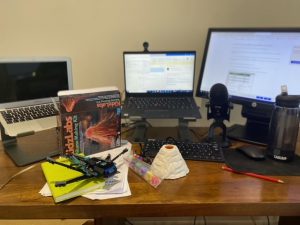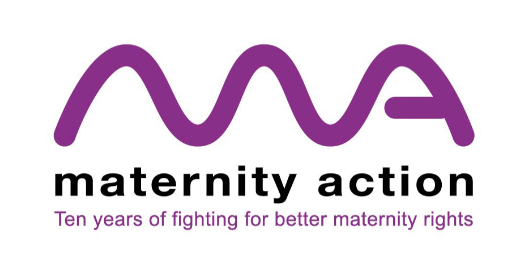Are you a mother working in Academia? Do you know of mothers who are?
 If so, then we need your assistance! The unforeseen Covid-19 pandemic has resulted in great professional and personal challenges for all academics but particularly mothers. Working from home, home-schooling and periodical closure of schools, nurseries and other childcare settings is the ‘new normal’, which is why we are keen to hear your unique experiences.
If so, then we need your assistance! The unforeseen Covid-19 pandemic has resulted in great professional and personal challenges for all academics but particularly mothers. Working from home, home-schooling and periodical closure of schools, nurseries and other childcare settings is the ‘new normal’, which is why we are keen to hear your unique experiences.
Our BU research team is passionate about developing interventions and strategies to support mother’s wellbeing, work life balance, and career progression.
Subsequently we are currently running a short online survey is to collect information to help further understand the experiences of mothers with young children (aged 0-16) working in paid positions in academia during the Covid-19 pandemic. We would love you to share your experience and support by completing the survey (if eligible) and/or sharing the link to the survey with your academic networks. The survey should only take 10 minutes, and findings will inform interventions and strategies to support women’s wellbeing and work-life balance.
We would like to invite you to take part if you meet the following inclusion criteria:
You identify as a woman and as a mother;
You have a child/children (that you identify as the mother of) living at home aged 0-16 years,
You are employed in a paid academic position (including funded research degree/post-doctoral researcher).
The link to the survey is https://bournemouth.onlinesurveys.ac.uk/exploring-the-experiences-of-mothers-with-young-children
If you would like more information, please access the Participant Information Sheet.
We do, however, acknowledge that the role of motherhood extends from the moment a woman sees or identifies herself as a mother and spans fully across the life course. Whilst women at all stages of motherhood have experienced vast challenges during this time (from having fertility treatment put on hold either permanently or temporarily, to being separated from their adult children) this survey will explore the experiences unique to those with young, dependent children, and the challenges associated with working in academic positions whilst caring and home-educating them.
We would really appreciate if you could share this information with your academic networks as the more responses we receive the better for understanding the experiences of motherhood and academia in the pandemic.
Thank you!
Joanne Mayoh, Sukanya Ayatakshi Endow and Abier Hamidi
Research Leads
 I attended a zoom meeting on the 25/11/20 hosted by Maternity Action (MA), which is the UK’s leading charity committed to ending inequality and improving the health and wellbeing of pregnant women, partners and young children – from conception through to the child’s early years. Part of their remit is the delivery of free, specialist advice through their telephone helplines, on employment rights, maternity pay and benefits. Maternity Action responds to 2,000 calls to their Maternity Rights Advice Line each year from women facing pregnancy discrimination at work or needing help understanding their employment rights. Shockingly, pregnant women or new mums experience high levels of discrimination and harassment, with circa 54,000 women losing their jobs each year as a direct result of pregnancy discrimination. One in 20 new mothers are made redundant during pregnancy, maternity leave or on their return to work.
I attended a zoom meeting on the 25/11/20 hosted by Maternity Action (MA), which is the UK’s leading charity committed to ending inequality and improving the health and wellbeing of pregnant women, partners and young children – from conception through to the child’s early years. Part of their remit is the delivery of free, specialist advice through their telephone helplines, on employment rights, maternity pay and benefits. Maternity Action responds to 2,000 calls to their Maternity Rights Advice Line each year from women facing pregnancy discrimination at work or needing help understanding their employment rights. Shockingly, pregnant women or new mums experience high levels of discrimination and harassment, with circa 54,000 women losing their jobs each year as a direct result of pregnancy discrimination. One in 20 new mothers are made redundant during pregnancy, maternity leave or on their return to work.










 Visiting Prof. Sujan Marahatta presenting at BU
Visiting Prof. Sujan Marahatta presenting at BU 3C Event: Research Culture, Community & Can you Guess Who? Friday 20 March 1-2pm
3C Event: Research Culture, Community & Can you Guess Who? Friday 20 March 1-2pm Beyond Academia: Exploring Career Options for Early Career Researchers – Online Workshop
Beyond Academia: Exploring Career Options for Early Career Researchers – Online Workshop UKCGE Recognised Research Supervision Programme: Deadline Approaching
UKCGE Recognised Research Supervision Programme: Deadline Approaching SPROUT: From Sustainable Research to Sustainable Research Lives
SPROUT: From Sustainable Research to Sustainable Research Lives ECR Funding Open Call: Research Culture & Community Grant – Apply now
ECR Funding Open Call: Research Culture & Community Grant – Apply now ECR Funding Open Call: Research Culture & Community Grant – Application Deadline Friday 12 December
ECR Funding Open Call: Research Culture & Community Grant – Application Deadline Friday 12 December MSCA Postdoctoral Fellowships 2025 Call
MSCA Postdoctoral Fellowships 2025 Call ERC Advanced Grant 2025 Webinar
ERC Advanced Grant 2025 Webinar Update on UKRO services
Update on UKRO services European research project exploring use of ‘virtual twins’ to better manage metabolic associated fatty liver disease
European research project exploring use of ‘virtual twins’ to better manage metabolic associated fatty liver disease